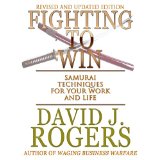 Writing is a time-consuming process of self-discovery, self-awareness, and self-expression that may satisfy a writer’s deepest needs. Some writers find that nothing can compete with, nothing can replace, the writer’s joy of creating. Many writers so saturate themselves with their work that it becomes a need as strong as sleep, sometimes stronger. Many writers think, “This writing that I am doing is essential to my fulfillment and well-being. At times I may be so involved I will forget to eat. I will forget to make love. I will block out distractions. I will arrange a life-style and personal habits and routines to accommodate my writing.”
Writing is a time-consuming process of self-discovery, self-awareness, and self-expression that may satisfy a writer’s deepest needs. Some writers find that nothing can compete with, nothing can replace, the writer’s joy of creating. Many writers so saturate themselves with their work that it becomes a need as strong as sleep, sometimes stronger. Many writers think, “This writing that I am doing is essential to my fulfillment and well-being. At times I may be so involved I will forget to eat. I will forget to make love. I will block out distractions. I will arrange a life-style and personal habits and routines to accommodate my writing.”
But writers have other roles too. And this fact creates conflicts. Psychiatrist Carl Gustav Jung thought that the artist’s life cannot be otherwise than full of conflicts because two forces are at war in them—on the one hand the normal human longing for happiness, satisfaction, and security, and on the other hand “a ruthless passion for creation which may go so far as to override every personal desire.” That passion for creation absorbs almost all the artist’s energy: “A special ability means a heavy expenditure of energy in a particular direction with a consequent drain from some other side of life.” The artist’s work “means more to him than his personal fate, whether he is aware of it or not. Being essentially the instrument for his work, he is subordinate to it.” (Carl Gustav Jung, “Psychology and Literature’ in Brewster Ghiselin, ed. The Creative Process).
In Silences, Tillie Olsen points out that delaying a focus on writing for a long time during a period in your life may become a habit: “The habits of a lifetime when everything else had to come before writing are not easily broken, even when circumstances now often make it possible for writing to be first; habits of years—response to others, distractibility, responsibility of daily matters—stay with you, mark you, become you” (Tillie Olsen, Silences, p. 38). If you desire to be a serious writer, these habits of letting other things come first create conflicts.
 Some writers do consider writing the most important role in their life and give other roles short shrift. Many writers would agree with Katherine Anne Porter who said that the “thing” between her and writing was the strongest bond she had ever had—stronger than any bond she had ever had with any person or activity. A survey showed that writers and poets are considered highly desirable occupations for a mate. But many are so consumed by writing, and work such long hours in such solitude, that they may make poor spouses. Nobel Prize winner Saul Bellow—married five times–said, “I have always put the requirements of what I was writing first—before jobs, before children, before any material or practical interest, and if I discover that anything interferes with what I’m doing, I chuck it. Perhaps this is foolish, but it has been the case with me.” (Saul Bellow in Conversations with Saul Bellow, p. 20)
Some writers do consider writing the most important role in their life and give other roles short shrift. Many writers would agree with Katherine Anne Porter who said that the “thing” between her and writing was the strongest bond she had ever had—stronger than any bond she had ever had with any person or activity. A survey showed that writers and poets are considered highly desirable occupations for a mate. But many are so consumed by writing, and work such long hours in such solitude, that they may make poor spouses. Nobel Prize winner Saul Bellow—married five times–said, “I have always put the requirements of what I was writing first—before jobs, before children, before any material or practical interest, and if I discover that anything interferes with what I’m doing, I chuck it. Perhaps this is foolish, but it has been the case with me.” (Saul Bellow in Conversations with Saul Bellow, p. 20)
Others consider writing enjoyable, but not nearly their most important role. Being an actively involved parent–a time-consuming function–can take precedence. Some writers think during the day about when they’ll have all the time to write whenever they want, but because they have other roles to fulfill, they consider themselves lucky if they can write at all. Married women writers especially testify to the difficulty of finding the time and support needed to have a successful writing career while also possibly holding another job and managing a family.
 Here it seems appropriate to talk about my Law of Give Up to Get. The Law of Give Up to Get means simply that to get something important in life, you must give up something else. Gripe all you want, rail at the gods, and wish it weren’t so, but you have no choice. In the long run, perhaps you can have everything you desire. But at any one time, to get A you’ll have to give up B. To get X you must give up Y, and maybe you might have to give up Z too. To write, you have no choice but to give up something else—maybe more than one thing. That’s a law, the way life works: to achieve this, you’ll have to give up that—time, energy and other resources spent doing other things, attaining other satisfactions.
Here it seems appropriate to talk about my Law of Give Up to Get. The Law of Give Up to Get means simply that to get something important in life, you must give up something else. Gripe all you want, rail at the gods, and wish it weren’t so, but you have no choice. In the long run, perhaps you can have everything you desire. But at any one time, to get A you’ll have to give up B. To get X you must give up Y, and maybe you might have to give up Z too. To write, you have no choice but to give up something else—maybe more than one thing. That’s a law, the way life works: to achieve this, you’ll have to give up that—time, energy and other resources spent doing other things, attaining other satisfactions.
Your Roles in Addition to Writing
Now I want you to identify four other roles you have in addition to your role as a writer. Also think about how important each role is to you and your major responsibilities in that role. Rank them in a hierarchy from the most important to the least important. (Include the role of a writer which may be number 1, number 5, or somewhere in between).
Where does your writing role fit on your hierarchy?
Now, answer the question: “What will I do to fulfill my role as a writer to the degree I want while also fulfilling the demands of other roles that I value highly?”
 Are there any roles in your life that can be supported with a smaller investment of time, energy, and other resources so that you can devote more time to writing? Are there any roles currently in your life you might dispense with?
Are there any roles in your life that can be supported with a smaller investment of time, energy, and other resources so that you can devote more time to writing? Are there any roles currently in your life you might dispense with?
You may have found that the life of a serious, hard-working writer is a difficult life. Yet in the midst of difficulties, writers from the Greeks and Romans to the present would agree with Henry Miller that writing is worth pursuing because, despite difficulties and disappointments, setbacks and trials, and the competition among your roles, writing is “a delectable thing.”
© 2023 David J. Rogers
For my interview from the international teleconference with Ben Dean about Fighting to Win, click the following link:
Order Fighting to Win: Samurai Techniques for Your Work and Life eBook by David J. Rogers
or
Order Waging Business Warfare: Lessons From the Military Masters in Achieving Competitive Superiority
or

